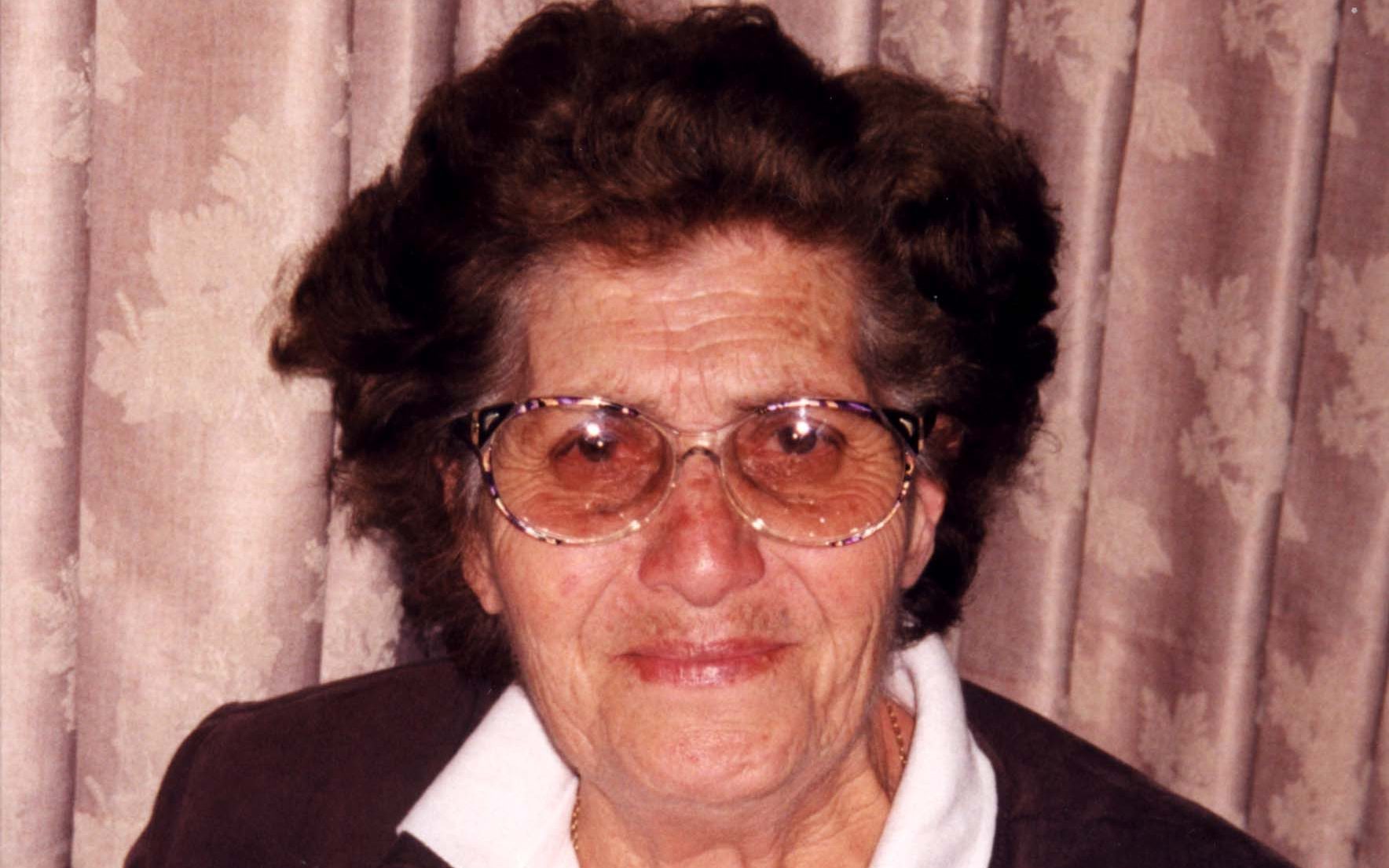
Profile courtesy of Yad Vashem
The Mordechai family lived in Veria, Greece, where Mentes Mordechai owned a thriving business and his wife, Miriam Mari, ran a fashion store and gave sewing courses to women in the town. They had five children Sarah (b. 1933, later Yanai), Asher (b. 1935), Shmuel (b. 1938) Rachel (b.1940), and Yosef (b. 1942, later Mor). When the war between Italy and Greece broke out in 1940, Mentes was drafted into the Greek army to fight in Albania. The family’s economic situation deteriorated, and Marie tried to make ends meet by knitting for the army. Eventually Mentes returned home.
When the Germans occupied Greece in April 1941, the persecution of the Jews began. Jews were marked with a yellow star, and soon rumors spread about deportations to labor camps. From her relatives in Germany Marie received a coded letter warning them of the impending danger to their lives. Arrests and deportations of Jews began in the nearby Thessaloniki in March 1943. Veria was next on the list of places to be emptied of Jews.
A prewar connection to a non-Jew changed the lives of the Mordechais during the Holocaust. Evlambia Tokatildo used to work as a housekeeper for the Mordechai family. After Jews could no longer keep gentile household help, Evlambia continued to maintain ties to her former employers. For example, she agreed to serve as a wet nurse for the Mordechais’ youngest child. Evlambia’s brother, Nikos Axiopoulos was determined to help the Mordechais, too. A carpenter, Nikos built a wooden ceiling in the attic of the old abandoned Turkish mosque where he was living with his family, with a space for the Jews to hide. While in the hiding place, the Mordechais evaded the deportation of the Jews of Veria at the end of March 1943.
Helping the Mordechais was a joint endeavor to which many people contributed, including the siblings of Nikos and Evlambia: Polixeni, Makrina (later Ananiadou), and Petros. They shared their meager food rations with the seven-member Jewish family.
The difficult living conditions in the hiding place required a fresh plan of rescue. Especially when the Mordechais developed health problems. It was Efthimia Gianopoulou (later Xanthopoulou) who helped the family. Again, it was a prewar connection that the Mordechais had forged and that proved crucial during the Holocaust. Before the war Efthimia had studied to be a seamstress at Mari’s studio. Since she was very poor and an orphan, Mari did not charge Efthimia for the lessons. Efthimia became quite attached to the Mordechais and visited them regularly after they went into hiding.
When a new place was needed, Efthimia arranged for the Mordechais to move to her home, where she lived with two younger sisters, 15-year-old Bithleem (later Sumbasi), and 14-year-old Melpomeni (later Dina). The three sisters shared their food rations with the Mordechai family and sheltered them, despite the risk. As food supplies were scarce and very expensive, Bithleem and Melpomeni cultivated a piece of land they owned in a swamp near Yiannitsa, about 25 miles from Veria. When Bithleem returned from working the land, she would carry on her back a sack with provisions for ten people.
The Jewish and non-Jewish families’ problems mounted. Because they remained hidden, the Jews had no access to medical care. Desperate to save six-year-old Shmuel, who became very ill, Bithleem took him to the hospital. Yet the child died. Amplifying the tragic loss was a denunciation that endangered the families and necessitated a new plan of rescue. This was no easy task, especially when searches for Jews in hiding were taking place in Greece.
Efthimia and her sisters helped the Jewish family to escape to a remote area in the hopes that they could survive there without being discovered. In order to get there, the Mordechais had to split. The Gianopoulou sisters took the eldest daughter, Sarah, to hide in the woods. Asher escaped on his own to the mountains. In the meantime, Mari took the youngest children, Rachel and Yosef, and set out on foot to look for a place to hide. Bithleem and her sisters supplied the family with clothes, appropriate for hiding in the mountain area of Vermio. The Mordechai family – who, in the meantime, had reunited – stayed in that region until the end of the war.
